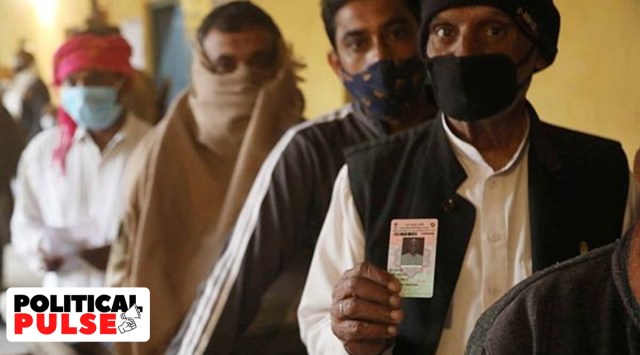IS A PARTICULAR group given priority by politicians as it is seen as a vote bank? This is one of the questions being asked of respondents as a commission set up by the Uttar Pradesh government to study the representation of OBCs in local bodies starts its survey, meeting individuals, officials, sitting representatives, contestants as well as political parties.
The questionnaire by the Uttar Pradesh State Local Bodies Dedicated Backward Classes Commission – set up by the government to meet court requirement before providing them quota in local bodies – asks respondents if they have ever held any position in the local body concerned, if the respondent is an OBC and of what specific group, the total number of OBC corporators elected to the local body in the past 10 years, which group formed the majority among them, whether the OBCs were given 27% reservation in previous elections or not, if the quota is enough as compared to their total population, and is economic weakness the reason for the low representation.

Largely, it’s the BJP and Samajwadi Party, the main rivals in last year’s Assembly polls, which are active participants at these meetings.
Story continues below this ad
The questionnaire shared with officials seeks information on the share of OBCs in local bodies compared to their overall numbers, the number of OBC candidates elected on general seats in elections held after 1995 (1997, 2002, 2007, 2012 and 2017; the polls could not be held last year), and the total number of seats reserved for OBCs across posts in 2012 and 2017. This data is cross-checked against the panel’s own findings during visits to districts.
One of the questionnaires seeks more detailed information, on the total population of the municipal ward, and the population of OBCs, SCs, STs and transgenders as a percentage of their total numbers.
The head of the commission, Justice (retd) Ram Avtar Singh, said: “The proforma has been sent to district magistrates. When we visit districts, the DMs provide information as per the proforma. Discussions are held on the data provided and questions asked of public representatives.” Singh said data of OBC population collected during rapid surveys in 2022 and 2017 was also being analysed.
Complaints received from public representatives at these meetings are also shared with the DMs.
Story continues below this ad
Initially, the full commission toured districts in three divisions – Gorakhpur, Ayodhya and Basti. To expedite the exercise, the members have been split into two teams. Apart from Singh, the members are former additional law advisor Brajesh Kumar Soni; retired IAS officer Mahendra Kumar, and former additional law advisor Santosh Kumar Vishwakarma.
The UP government constituted the commission in December, with the mandate to carry out an empirical study and investigation into representation of backward classes in Urban Local Bodies, before the next elections to the bodies are held. Based on its recommendations, the state government will figure out proportional reservation for backward classes per each urban local body.
In an order in December, the Lucknow Bench of the Allahabad High Court had asked the government to meet the “triple test” condition, as mandated by the Supreme Court, before providing reservation for backward classes in urban local body polls.
The triple test requires the state government to ensure three conditions are met before reservation is provided to OBCs in local bodies: a) a dedicated commission has conducted a contemporaneous rigorous empirical inquiry into the nature and implications of the backwardness qua local bodies, within the state; b) the government has specified the proportion of reservation required to be provisioned local body-wise in light of recommendations of the commission; and c) such reservation shall not exceed 50% of the total seats reserved in favour of SCs/STs/OBCs taken together.

































